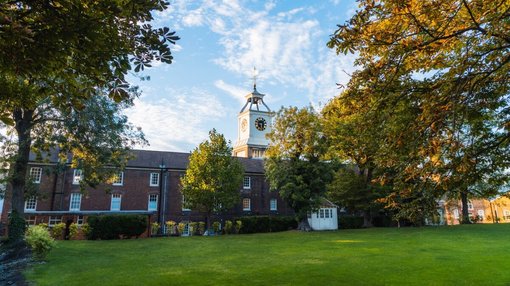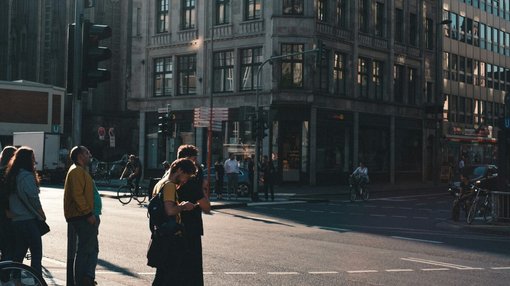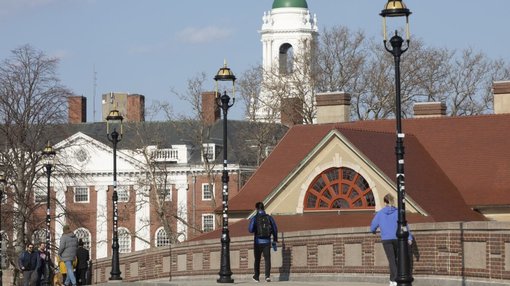The Myth of "Activist Judges"
Archive by Erudera News Dec 19, 2006

The following is an excerpt from remarks made on Nov. 26, 2006, hy Federal Judge John E. Jones at Bennington College‘s Ruth D. Ewing Lecture in Social Activism. Jones captured national attention in December 2005 after deciding the historic Kitzmiller v. Dover Area School District case–the first direct federal challenge against a public school district that required teachers to present “intelligent design” as an alternative to evolution.
Jones, a Bush-appointed Republican Lutheran, issued a 139-page finding against Dover’s mandate, concluding that “the overwhelming evidence at trial established that ID [intelligent design] is a religious view, a mere re-labeling of creationism, and not a scientific theory.” In his remarks at Bennington, Jones rejected criticisms that he is a “judicial activist,” and he explained how judges actually go about deciding cases.
 What all of them had in common–all of these criticisms–was that they omitted to note the role of precedent, how judges work, the Rule of Law. Trial judges carefully find the facts in a case and apply existing precedent as handed down by higher courts–most notably, in this case, the Supreme Court of the United States. There was simply no attempt [in these media criticisms] to illuminate those issues or educate the public.
What all of them had in common–all of these criticisms–was that they omitted to note the role of precedent, how judges work, the Rule of Law. Trial judges carefully find the facts in a case and apply existing precedent as handed down by higher courts–most notably, in this case, the Supreme Court of the United States. There was simply no attempt [in these media criticisms] to illuminate those issues or educate the public.
In this case [Kitzmiller v. Dover Area School District], without getting excessively legal, there were two tests I had to apply. They are the Lemon Test and Endorsement Test, and what they are, in essence, are carefully crafted tests handed down by the Supreme Court that you overlay against the facts of the case to decide whether or not a particular policy violates the Establishment Clause within the First Amendment of the Constitution.
To hear these critics tell it, we live in a world where judges make essentially ad hoc determinations. This is really a false world that they tend to propagate, where judges rule according to personal bias, particular whims or political philosophies, or in order to please political benefactors–or, worse perhaps, respond to the perceived public will at any given time…. And that gets into a still larger issue that I think is of somewhat crisis proportions, which I call a crisis in judicial independence. Many judges across the country feel exceedingly threatened by a public, a punditry, and a political establishment that tends to launch ad hominem attacks against individual judges when they disagree with them….
If you look at public polls in the United States, at any given time a significant percentage of Americans believe that it is acceptable to teach creationism in public high schools. And that gives rise to an assumption on the part of the public that judges should ‘get with the program’ and make decisions according to the popular will.
There’s a problem with that….The framers of the Constitution, in their almost infinite wisdom, designed the legislative and executive branches under Articles I and II to be directly responsive to the public will. They designed the judiciary, under Article III, to be responsive not to the public will–in effect to be a bulwark against public will at any given time–but to be responsible to the Constitution and the laws of the United States.
That distinction, just like the role of precedent, tends to be lost in the analysis of judges’ decisions, including my decision. I joked in the beginning about being an activist judge; had I decided this case in a different way, had I disregarded the facts, had I disregarded existing precedent, had I ‘taken one for the team,’ as it were, I would have truly been an activist judge in that case.
The one thing I want you to remember, if I leave you with nothing else tonight, is that the Rule of Law is not a conservative or liberal value. It is assuredly not a Republican or Democratic value either; rather, it is an American value….The challenge for our time, then, as it relates to the cherished system of justice created by our Founders, is to ensure that threats against judges–and by implication to judicial independence–are ratcheted down, and that our independent judiciary is thus preserved.
Recent Articles
United Kingdom
Apr 24, 2024
Germany
Apr 24, 2024
United States
Apr 23, 2024
Canada
Apr 23, 2024
United States
Apr 22, 2024


